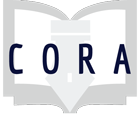What do the “information literacy concepts” listed on the assignments mean?
The “information literacy concepts” listed on the assignments refer to five sets of documents. The first document is the Association of College & Research Libraries’ (ACRL) Information Literacy Competency Standards for Higher Education published in 2000. The following information literacy concepts correspond to standards from this document and are designated as (ACRL No. ) in CORA:
- “Defines Information Need” (Standard 1)
- “Finds Information” (Standard 2)
- “Evaluates” (Standard 3)
- “Uses Information” (Standard 4)
- “Ethics” (Standard 5)
The second document is The SCONUL Seven Pillars of Information Literacy: Core Model published in 2011 by the SCONUL Working Group in the UK. The following information literacy concepts correspond to pillars from this document and are designated as (SCONUL No. ) in CORA:
- SCONUL 1: Identify (able to identify a personal need for information)
- SCONUL 2: Scope (can assess current knowledge and identify gaps)
- SCONUL 3: Plan (can construct strategies for locating info and data)
- SCONUL 4: Gather (can locate and access the info and data they need)
- SCONUL 5: Evaluate (can review the research process and compare and evaluate info and data)
- SCONUL 6: Manage (can organise info professionally and ethically)
- SCONUL 7: Present (can apply the knowledge gained: presenting the results of their research synthesizing new and old info and data to create new knowledge and disseminating it in a variety of ways)
The third document is the Australian and New Zealand Information Literacy Framework published in 2004 by Australian and New Zealand Institute for Information Literacy ANZIL) and Council of Australian University Librarians (CAUL). The following information literacy concepts correspond to standards from this document and are designated as (ANZIL No. ) in CORA:
- ANZIL 1: recognizes the need for information and determines the nature and extent of the info needed
- ANZIL 2: finds needed info effectively and efficiently
- ANZIL 3: critically evaluates info and the info seeking process
- ANZIL 4: manages info collected or generated
- ANZIL 5: applies prior and new info to construct new concepts or create new understandings
- ANZIL 6: uses info with understanding and acknowledges cultural, ethical, economic, legal, and social issues surrounding the use of info
The fourth document is A New Curriculum for Information Literacy (ANCIL) published in 2011 by Jane Secker and Emma Coonan. The following information literacy concepts correspond to strands from this document and are designated as (ANCIL No.) in CORA:
- ANCIL 4: mapping and evaluating the information landscape
- ANCIL 5: resource discovery in your discipline
- ANCIL 7: ethical dimension of information
- ANCIL 8: presenting and communicating knowledge
- ANCIL 9: synthesizing information and creating new knowledge
The last document is the Association of College & Research Libraries’ Framework for Information Literacy for Higher Education filed by the ACRL Board in 2015. The following information literacy concepts correspond to the core concepts from this document and are designated as (acrl frame) in CORA:
- “Authority is Constructed/Contextual” (Frame 1)
- “Information Creation as Process” (Frame 2)
- “Information Has Value (Frame 3)
- “Research as Inquiry” (Frame 4)
- “Scholarship as Conversation” (Frame 5)
- “Searching as Strategic Exploration (Frame 6)
<< Back to Help Center
- 3083 reads
